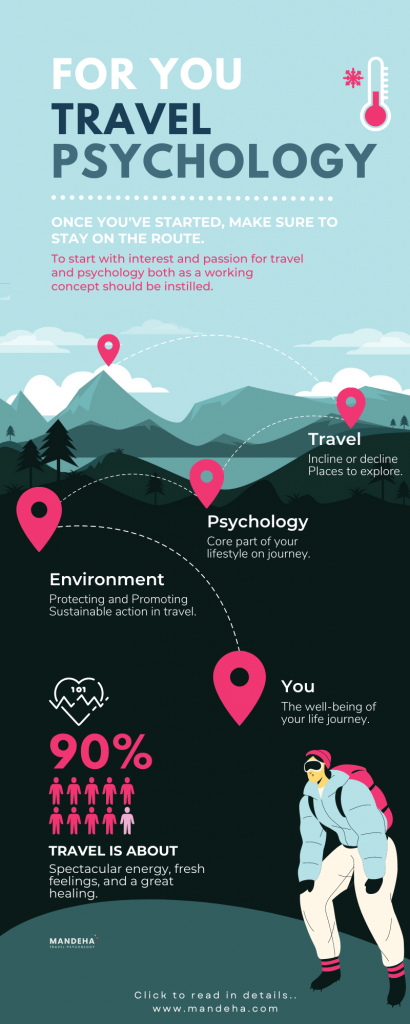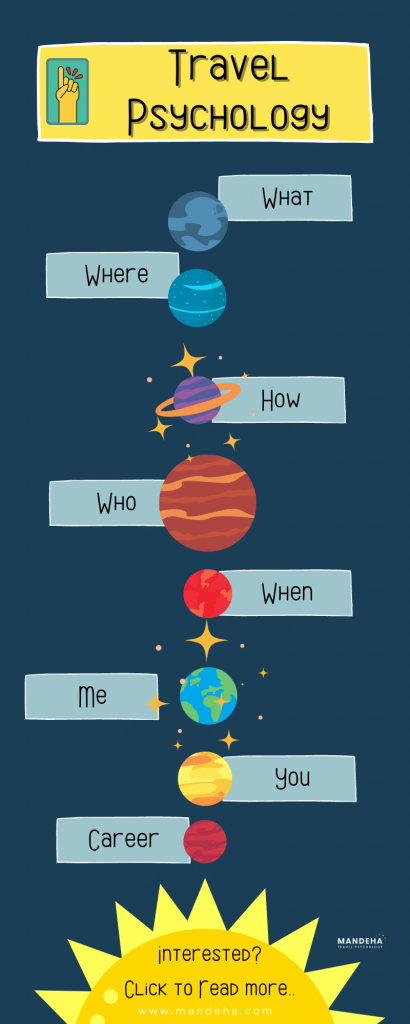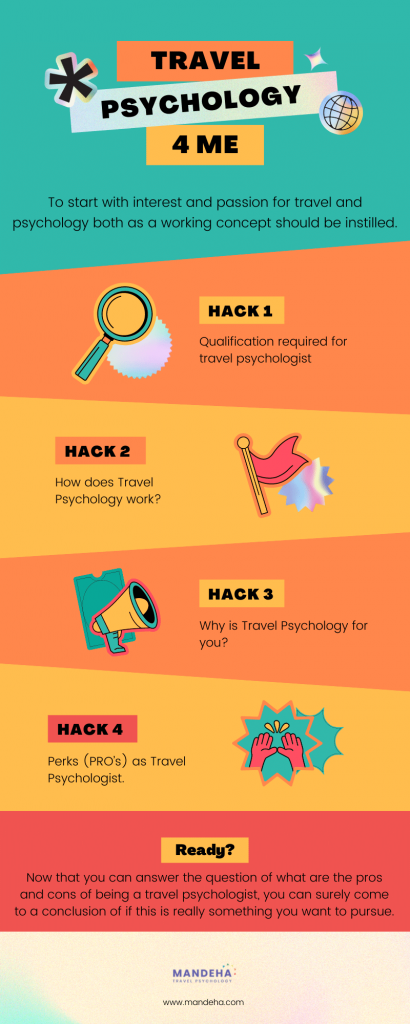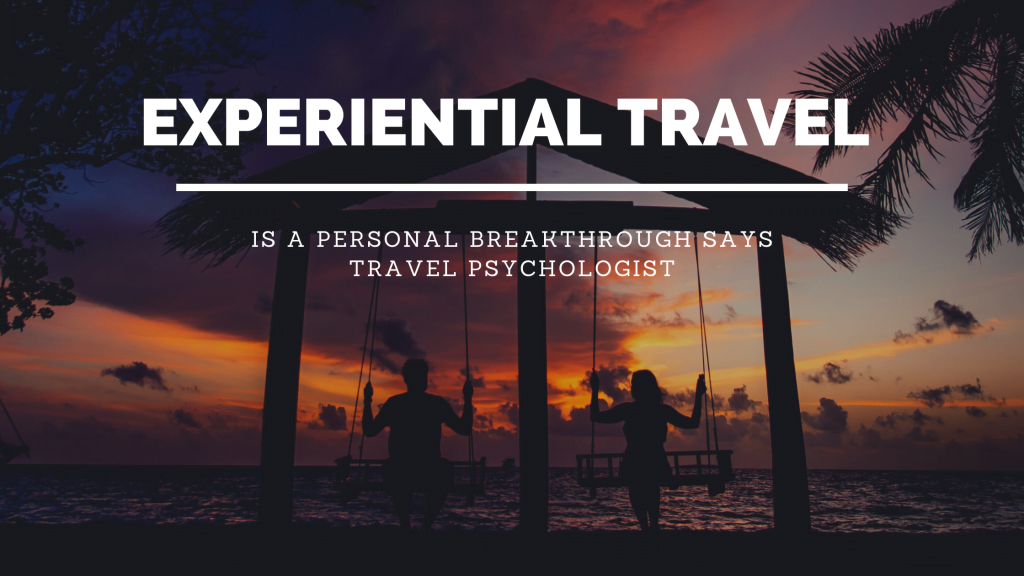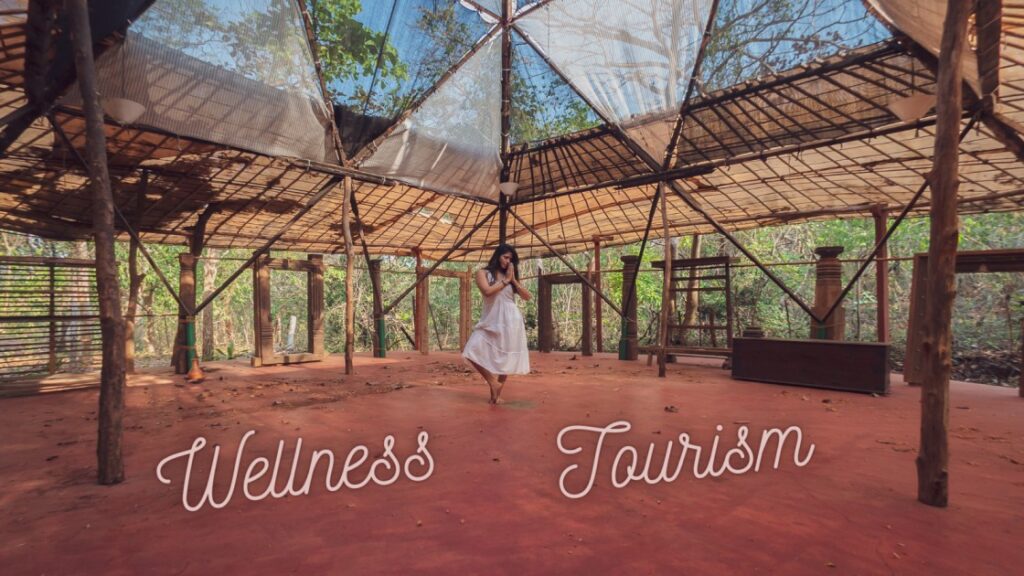Remember, to become a travel psychologist is a journey, requiring dedication, education, and experience. It can be a fulfilling career for those who enjoy helping others while exploring the world, so if it aligns with your passions, start paving your path today!
By following these insights continuously honing your skills you can embark on a rewarding career to become a Travel Psychologist. Helping individuals navigate the psychological aspects of their travel experiences and promoting mental well-being in diverse travel contexts.
What is travel psychology?
Travel Psychology is the study and application of how thoughts, feelings, and behaviours of individuals are influenced by travel interactions, experiences including their effects on individual and societal wellbeing.
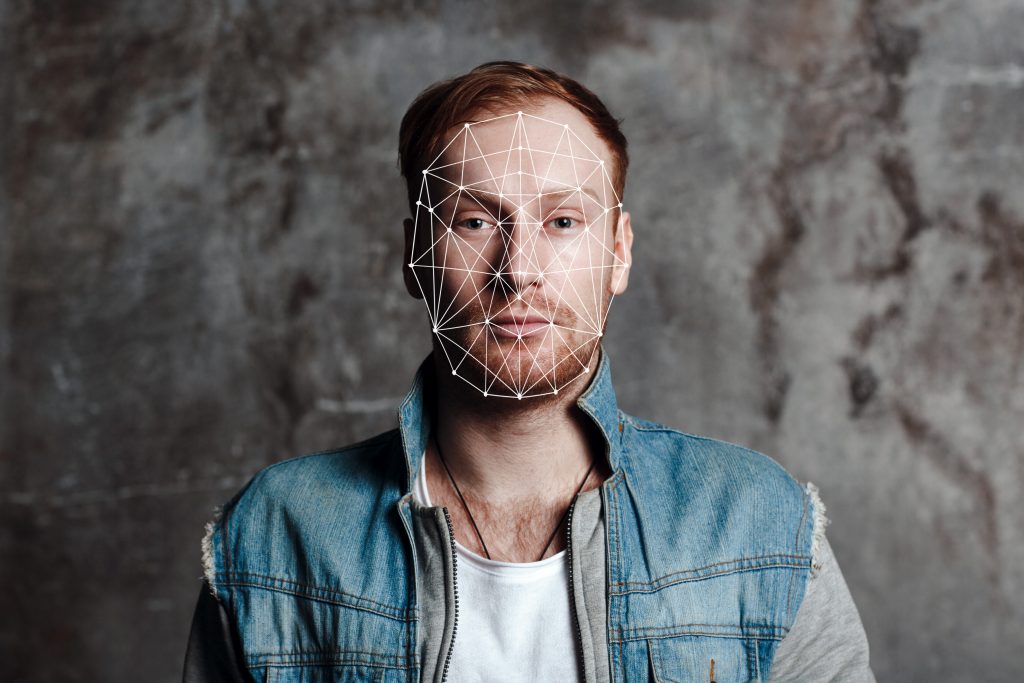
What qualifications are required to become a travel psychologist?
Like other psychology specializations (positive, social, organizational), it demands similar master’s levels of curriculum-based education. Being a multidisciplinary concept, it’s important to understand and be up to date with recent trends. On how the wellness travel industry operates is the skill one needs to be educated on a constant basis.
E.g. The Wellness Travel Industry since Pandemic is the most financially growing industry, so working around those likely factors would be the first approach to become a travel psychologist.
Why Travel Psychology is for you?
Travel Psychology offers a unique and enriching opportunity for individuals passionate about both travel and psychology. By delving into the intricate interplay between human behavior, travel experiences, and the environment, it provides a deeper understanding of oneself and the world.
Whether you’re intrigued by the psychological dynamics of different travel experiences. You should be Interested in helping others navigate the emotional challenges of travel, seeking to enhance personal growth through exploration. With the chance to make a meaningful impact on people’s journeys and cultivate mental resilience for diverse travel scenarios. Embarking on a journey to become a travel psychologist could be the perfect fit for you.
Leveraging our expertise in travel dynamics and proprietary tools, Mandeha aims to enrich travelers’ journeys, fostering profound insights and experiences. If you are experts into any of these included:
Psychology Students | Psychologists | Counsellors | Corporate Trainers. Travel Designers | Travel Industry Professionals | Wellness Experts | Travellers
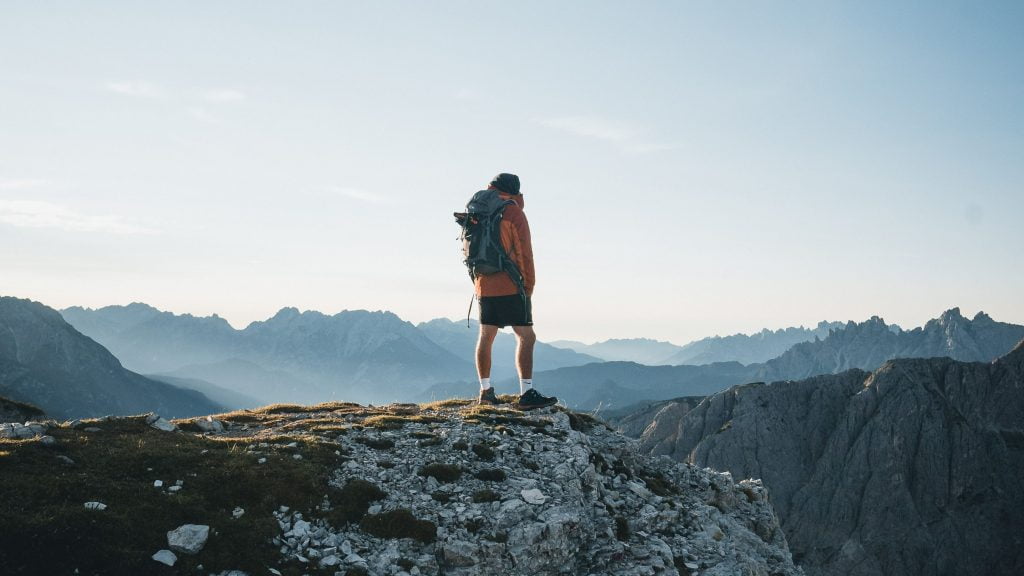
What courses would you recommend becoming a travel psychologist?
First, cultivate a genuine interest in both travel and psychology. Begin by exploring concepts such as social, positive, and embodied cognition, which delve into understanding how human traits interact with the environment. This exploration extends to recognizing personal and environmental responsibilities.
We offer an in-house Travel Psychology Course, followed by hands-on training at Mandeha. This prepares individuals to become a travel psychologist, gaining practical experience as various disciplines intersect during journeys.
How does Travel Psychology work?
Embrace freedom, explore with purpose, and transform your life. Travel psychology isn’t just about ticking destinations off a list; it’s about crafting a journey that resonates with your unique needs and aspirations. Here’s how we guide you through this transformative process:
Step 1 – PRE JOURNEY EXPLORATION
- Discover your travel DNA: We delve into your interests, motivations, and past experiences to understand your ideal travel style.
- Craft your personalized itinerary: Together we design a flexible schedule with over 80% of your time dedicated to fulfilling your aspirations.
- Maximize your impact: We curate experiences that enrich your life and well-being, aligning with your personal goals.
Step 2 – ON JOURNEY INSIGHTS
- Unleash your inner explorer: We empower you to actively engage with your chosen destinations valuing each experience on its own terms.
- Connect with your purpose: We help you interpret your reactions and discoveries ensuring your journey aligns with your social desires and travel goals.
Step 3 – POST JOURNEY REFLECTIONS
- Mine your travel treasures: We guide you in analyzing your personal anecdotes, adventures, and discoveries, extracting valuable insights.
- Transformative learning: We help you understand how each experience, from triumphs to challenges, contributes to your personal growth and well-being.
Step 4 – EXPERT GUIDANCE BEYOND YOUR JOURNEY
- Unlock your full potential: We acknowledge that travel alone may not be enough to achieve your desired life transformations.
- Partner with your travel psychologist: We guide you through ongoing processes that enhance your quality of life and help you achieve your goals.
How is travel psychologist different from those who work in the travel sector?
The Wellness Travel and Tourism Industry boasts a vast array of experiences, offering over 20 different types of travel, including Experiential, Eco-tourism, Solo, and Adventures, among others. Moreover, Hospitality plays a crucial role in this journey, providing various accommodation options ranging from Luxury to Homestays, totaling over 10 types of experiences to choose from.
Travel Psychology delves into the human psyche, focusing on the interplay between individuals, travel experiences, and the environment. It aims to facilitate the desired change and insight sought through travel. Embracing multiple disciplines, it grapples with psychometrics (utilizing Tangible Travel Tools), personal growth and transformation (via the LEGIT Travel Model), and the pursuit of sustainable development goals (SDGs) in both environmental and human contexts — all knowledge that can be applied to life. Ultimately, travel serves as an ongoing learning journey for everyone involved.
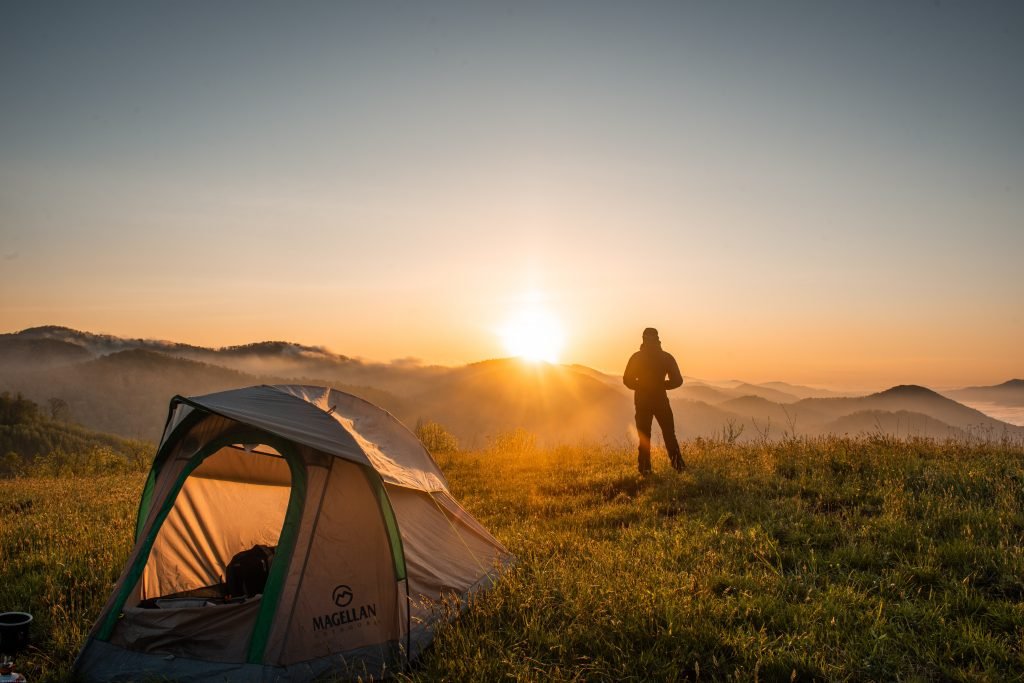
As compared to other countries, is there a demand for travel psychologists in India?
I personally get excited on this question about demands & jobs in any field irrespective of psychology. I always say, “it is an individual’s skills, talents and hard work combined with a positive approach towards a goal, which gives them the result they seek.”
In this case, Travel Psychology demand and other perks. One of the biggest examples is The United Nation World Tourism Organisation (UNWTO) is working hard towards Tourism for Sustainable Development goals where Health and Wellbeing is one of the goals out of 17 other goals. The novel initiative of Tourism Opens Minds focuses on offbeat experiences and mental wellness.
Compared to other countries, the demand for travel psychologists in India is still emerging but steadily growing. With the increasing recognition of the importance of mental health in wellness travel industry, there is a growing need for professionals who specialize in understanding the psychological aspects of travel.
As travel becomes more accessible and diverse in India, individuals are seeking support to navigate the emotional and psychological challenges that can arise during their journeys. Additionally, with the rise of adventure tourism, eco-tourism, and wellness travel in India, there is a greater emphasis on understanding the psychological dynamics of these experiences. While the demand may not be as high as in some other countries, the potential for growth and impact in the field of travel psychology in India is promising.
What are the perks to become a travel psychologist?
(PRO’s) the Benefits to become a Travel Psychologist.
- You can expect to make a pretty good living.
- Choose from different specialties within travel psychology. (applied consultant, education or research)
- Tour the cities and countries.
- Work in many different locations, no pun intended.
- You could be in charge of your day.
- Boredom will not be a part of your life.
- You could be helping others to help themselves.
- You could work with some pretty famous people.
- Wellness is a prestigious career.
- You will have autonomy.
So, to become a travel psychologist and make it full time career can be one of many rewards, but like anything, there can be a downside to it as well. There will be challenges, hurdles, bad days and some work might not end up being onboard but that’s part of work-life. Now that you can answer the question of what the pros and cons to become a travel psychologist, you can surely come to a conclusion of if this is really something you want to pursue.
So, if things start feeling too easy or familiar, veering off the path is not only to be recommended, but also essential. Chuck the itinerary, hop on the bus and sit next to another person and smile. You may be met by a suspicious glower – or you may be met by a smile in return. It could be the start of a connection.
